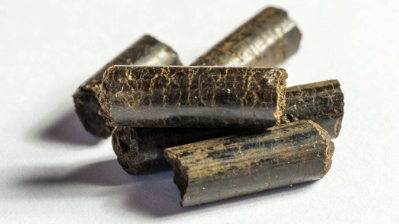SYLLABUS:
GS-3: Conservation, environmental pollution and degradation, environmental impact assessment
Context: The Union Ministry of Power released a comprehensive policy on co-firing biomass and torrefied charcoal from municipal solid waste (MSW) in coal-based thermal power plants (TPP).
More on the News
- The availability of biomass in India is estimated at 750 million tonnes every year, of which 230 million tonnes is agricultural residue considered to be surplus.
- India’s urban areas generate about 1.5 lakh tonnes of MSW daily (2023), of which roughly 75% is processed, while the remaining 25% remains unmanaged.
Key Provisions of the Policy
- Objective: The policy aims to utilise surplus agricultural residue and unmanaged municipal waste to reduce emissions and support the Swachh Bharat Mission.
- Mandatory co-firing: From FY 2025–26, coal-based thermal power plants must co-fire biomass and/or MSW-derived charcoal with coal.
- Blending percentages:
- In the NCR: A 5% blend of biomass pellets is required, plus an additional 2% blend of biomass pellets and/or MSW-based torrefied charcoal.
- Outside the NCR: A minimum 5% blend of biomass pellets and/or MSW-based torrefied charcoal is required.
- Fuel sourcing (NCR specific): For plants in and around the NCR, a minimum of 50% of the biomass pellet raw material must be sourced as crop residue from the NCR and adjoining areas.
- Policy supersession: This new comprehensive policy replaces all earlier versions of the biomass co-firing policy.
- Exemptions: Plants can apply for exemptions on a case-by-case basis, with applications reviewed by a committee.
- Future review: The co-firing percentage will be reviewed in the future based on the availability of surplus biomass and torrefied charcoal.
Challenges and Risks associated with Co-firing
- Technical concerns: MSW charcoal often contains chlorine, alkali metals, and other contaminants, which may lead to corrosion, instability, and reduced efficiency in boilers.
- Pollutant emissions: Risks of dioxins, furans, heavy metals, and acidic gases could increase, demanding more rigorous pollution monitoring.
- Feedstock quality: Without efficient segregation at source, torrefied charcoal made from contaminated waste may carry concentrated toxins.
- Infrastructure needs: Power plants may need upgrades in their monitoring systems, especially to track pollutants not routinely measured today.
Way Ahead
- Strengthen Waste Segregation and Feedstock Quality: Set national quality standards for MSW-derived charcoal to prevent contaminants like chlorine and heavy metals from entering boilers.
- Develop a Robust Supply Chain for MSW Charcoal: Create long-term procurement contracts between power plants and waste-processing facilities to ensure supply stability.
- Strengthen Regulatory Oversight: Establish a dedicated inter-ministerial monitoring mechanism to regularly review performance and environmental impact.
- Enhance Technical Capacity of Thermal Power Plants: Provide financial and technological support for necessary retrofits, including improved handling and storage systems for MSW-charcoal.
Sources:
Down To Earth
Energetica

